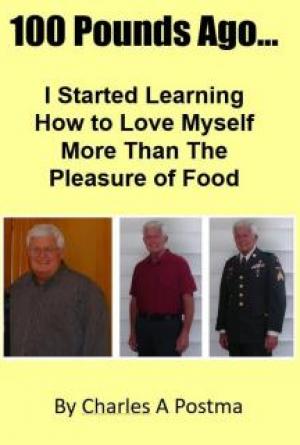The Exercise Myth
Is all exercise really bad for you? Absolutely, all kinds of exercise are bad for health. Furthermore, regular exercise actually makes you fat.
To clarify the terminology, 'exercise' is defined as any physical exertion that is sufficiently vigorous and sustained as to make you breathless and/or sweaty. This is the common understanding of the word 'exercise'. If you don't pant and/or sweat, even a little, it is usually not considered as 'exercise'.
You become breathless when you are forced to pant for air by mouth. The medical term for being breathless is 'hyperventilation'. Even breathing in through the nose and out through the mouth is bad for you if the exercise makes you sweaty and drains you of energy.
On the other hand physical activity is super healthy. The term 'physical activity' in this book refers to just that: physical activity that is not sufficiently vigorous and sustained as to make you breathless and/or sweaty (and you are not forced to mouth-breathe). As you will see, exercise is bad for health and physical activity is good for health.
Clearly, a brief moment of exertion that makes you a little breathless or that causes a momentary spot of perspiration will cause no lasting harm as the body is quite resilient and is able to recover from such stress. Here, we are talking about exercise that is carried out regularly (several times a week) and that is sufficiently vigorous to make you breathless and/or sweaty; this leaves you drained of energy and exhausted, however temporary. As you will see, exercise stresses the body at a molecular level and is unhealthy in several ways, even if you enjoy such exertion and are used to doing it.
Exercise oxidises and ages the body before its time, causing a multitude of illnesses and chronic bad health. You simply don't need to exercise to stay physically fit, healthy, and slim.
If you already do regular exercise that makes you breathless and/or sweaty, you will discover that within days of switching to physical activity you will feel like a new person, full of energy and well-being. You will feel better physically and emotionally, and after reading this book, you will wonder why on earth you ever did exercise.
If you are a true couch potato and you never even go for a walk, you will know that your health is suffering. You will know that your muscles are not as firm as they could be and you will know that you are overweight. The solution is simple (and will please you): become physically active as explained in this chapter but stay away from exercise. Build physical activity into everything you do and make a point of going for a long walk every day. As you become more physically active (but without doing exercise) you will feel invigorated, your health will improve dramatically and your life will change for the better.
By being 'physically active' we are only talking about doing the usual daily activities your body is used to (and that your body is meant to do) such as walking, swinging the arms, going up steps, pulling, pushing, lifting, etc. But in fact virtually any kind of exercise can, with a little imagination, be adapted so as to not make you breathless and /or sweaty. For example cycling, swimming, floor exercises, weight lifting, and many other activities can easily be carried out without becoming breathless and/or sweaty and without mouth-breathing.

The latest research is clearly showing that exercise shortens life expectancy, is bad for health in general, and causes a host of problems, such as osteoarthritis, osteoporosis, diabetes, heart disease, cancer, obesity, premature aging of the body, and weaker bones to name just a few of the issues.
These health issues arise from six specific factors which are examined briefly in what follows. Note: A detailed examination of the effects of exercise on health and the full supporting evidence are beyond the scope of this book; for this please see our sister publication: Why You should Avoid Exercise.

1. Exercise and Malnourishment. Exercise causes severe malnourishment, and this in turn makes you over-weight however nutritious the diet.
Exercise robs the body of valuable vitamins and minerals (the loss is very significant). This in turn causes malnourishment. You cannot lose surplus body weight in a sustained or healthy manner if you are malnourished. If you do this, you will become ill and lose all motivation to lose weight.
Growing research is now clearly showing that you lose significant amounts of vitamins and minerals in your sweat. It contains a rich mix of many minerals, such as sodium, potassium, calcium, magnesium, zinc, copper, iron, chromium, and nickel, plus many other less-abundant trace minerals. You also lose the B vitamins and vitamin C in sweat because these are water soluble vitamins.
You are urged to see this youtube video in which Dr. Peter Glidden describes why athletes die young as a result of mineral depletion through exercise: http://youtu.be/DB5A8TtyRpE.
Now we come to a crucial point in terms of obesity: deficiency of vitamins and minerals causes obesity. Many studies clearly show that a lack of minerals in particular prevents the body from losing weight and staying slim.
"Obese individuals are more likely to have either lower blood concentrations or lower bioavailability of minerals and/or vitamins. However, there are limited data on the effects of nutritional supplementation on body weight (BW) control." Source: Li Y, et al, Effects of multivitamin and mineral supplementation on adiposity, energy expenditure and lipid profiles in obese Chinese women, Int J Obes (Lond). 2010 Jun; 34(6):1070-7.
When the body 'thinks' it is being starved from insufficient nutrition it triggers a 'starvation response' and the body tries to save as much fat as possible as a survival mechanism. So the regular loss of nutrients through sweat puts the body into a regular starvation response.
You don't need to be under-weight to be malnourished. Indeed, most obese people are malnourished; the consumption of junk food bereft of vitamins and minerals makes you fat and leaves you malnourished. Such people are fat mainly because they are malnourished.
There is ample and incontrovertible evidence that a malnourished body is much more prone to accumulate surplus body-fat. Here is just one of the many studies on this subject:
"Malnourishment is one of the major reasons many people are overweight and could be why you are carrying more body-fat than you'd like or you have stubborn fat you can't get rid of. I'm referring to micronutrients like minerals, vitamins and enzymes, etc. ...the small stuff that is required to make the metabolic processes of the body actually work. When you don't get the nutrients your body needs to sustain your metabolic processes, this sends a hunger signal to your brain to eat more food...which you then satisfy by eating more nutrient-poor food...which then repeats the signal that your body is lacking nutrients...so you eat more food...and so on. When you're in a nutrient deficient state, your body sees that as a famine situation, and the metabolic rate gets slowed down. Fat-burning grinds to a halt as your body fights to hang onto all the resources it has in order to survive. Eating more healthy foods is a HUGE step in the right direction, especially focusing on organic foods and unprocessed foods". Source: Nick Nilsson, degree in Physical Education and Psychology, with more than 20 years physical training experience. Nilsson is the author of a number of bodybuilding books.
*
You may consider that fat people are malnourished because of their poor diet rather than because of sweaty exercise. This no doubt is so in most cases because most fat people are not in the habit of doing regular sweaty exercise. But equally, most people who do regular sweaty exercise suffer chronic malnourishment, become overweight, and face a life-long battle against obesity.
2. Exercise and Energy depletion. Exercise drains your muscle energy and greatly increases your propensity to store body-fat.
When you exercise to the extent of becoming sweaty and breathless you make the body think that it is facing some kind of emergency, known medically as the 'fight-or-flight response'. This is so however much you may enjoy the exercise. What happens is this:
Exercise quickly drains your muscles (and liver) of energy, leaving you exhausted and feeling weak and hungry. Note: The energy stored in muscles for all our everyday activities is known as glycogen
As a result, you will inevitably eat food (at some point) following exercise, and the body will use energy from the food you eat (instead of using surplus body-fat) to replenish muscle energy. In doing so, no surplus body-fat will be lost because, to replenish muscle energy, the body always gives priority to taking energy from the food you eat rather than taking it from body-fat.

Going without food after exercise in the hope that body-fat will be 'burnt' is a forlorn hope. You would have to fast for at least three whole days before the body even begins to use up stored fat for muscle energy.
Once you have eaten and fully replenished the glycogen that was drained from the muscles and liver, the body will switch out of the fight-or-flight response because it will 'think' the danger is over. But switching out of the fight-or-flight response is not quick; it can typically take a day or so providing you cease exercising. If you exercise everyday you stay in a semi-permanent state of 'fight-or-flight' as you don't give the body a chance to fully switch out of survival mode.
You may not feel hungry the moment you finish exercising, but you can be sure that at some point later on during the day or evening you will need to eat to replace the lost energy. And when you do eventually eat, the body will be primed to store as much of that food-energy as body-fat once the muscles have been replenished with glycogen.
3. Exercise and the Cortisol Factor. Exercise significantly increases the level of cortisol in the blood as a result of the physical stress imposed on the body. Even at mild or moderate levels of exercise, it is known that this increases the amount of cortisol in the bloodstream, and this in turn increases obesity. Here are just two of the many studies showing how exercise greatly increases blood cortisol and body fat:
"Collectively, the cortisol findings support the view that moderate to high intensity exercise provokes increases in circulating cortisol levels." Source: Hill EE, et al, Exercise and circulating cortisol levels: the intensity threshold effect, J Endocrinol Invest. 2008 Jul; 31(7):587-91.
*
"Cortisol affects fat distribution by causing fat to be stored centrally—around the organs. Cortisol exposure can increase visceral fat—the fat surrounding the organs—in animals." Source: Elissa Epel, et al, Stress May Cause Excess Abdominal Fat In Otherwise Slender Women, Psychosomatic Medicine, Sept. 2012.
*
When cortisol in the blood rises, this has the direct effect of increasing body-fat. This is why athletes and those who exercise regularly are much more prone to being overweight. It is ironic that most people who go running do so to be slim, yet that same exercise only serves to make them fatter.
Worse still is the fact that the surplus body-fat gained from exercise is of the worst kind. The higher levels of cortisol gained from exercise pre-dispose the body to store fat around the midriff. In women this means around the waist, hips, thighs and buttocks. In men it mostly means around the abdomen, giving men a pot belly or ‘spare tire’. This type of surplus body-fat is particularly unhealthy and very difficult to get rid of.
"One of the interesting but ‘paradoxical’ observations in my clinical practice is the rather large number of patients presenting with severe obesity, who have histories of successful competitive sports careers." Source: - Dr. Arya Sharma, MD/PhD, FRCPC, Prof. of Medicine & Chair in Obesity Research and Management at the University of Alberta, Canada, www.drsharma.ca.
When cortisol pushes up the level of glucose in the blood it is a very temporary condition to get you out of trouble. Then soon afterwards the body uses insulin to bring down the level of glucose. This is when surplus glucose is stored as body-fat.
But cortisol is not your enemy; it fulfils several vital functions and is used by the body as a survival mechanism when faced with danger (the body 'perceives' exercise as a danger). Your enemy is the exercise that stresses the body - this is what triggers cortisol. Equally, glucose is not your enemy (in the context of body weight); your enemy is surplus body-fat.
To summarize: exercise pushes up blood cortisol and blood glucose. After the exercise, insulin brings down the level of glucose in the blood by storing excess glucose as bodyfat around the hips, thighs, buttocks and stomach. Hence, cortisol has a direct effect on increasing the body's propensity to store surplus body-fat.
4. Exercise and the Leptin Factor. Exercise reduces the level of leptin in the blood, and this causes hunger, over-eating and junk-food consumption.
Leptin is a powerful hormone produced by the body to control feelings of hunger. It is always circulating in the blood and its role is to keep body weight within a healthy narrow range. If your body-fat falls below the norm (the 'baseline level') leptin levels in the blood will go down to make you eat more by increasing feelings of hunger. If your body-fat goes above the norm, leptin levels in the blood will go up to make you eat less by reducing feelings of hunger.
"Leptin circulates in blood and acts on the hypothalamus to regulate food intake and energy expenditure. When fat mass falls, plasma leptin levels fall stimulating appetite and suppressing energy expenditure until fat mass is restored. When fat mass increases, leptin levels increase, suppressing appetite until weight is lost". Source: Wikipedia.
So in general the lower the level of leptin in the blood the fatter you become. The higher the level, the thinner you become. For those wishing to lose weight, leptin is truly the most important hormone to know about. You may wonder how this relates to exercise?
As already mentioned, a major cause of obesity is a lack of underlying nutrition. We must remember that the body considers malnutrition as much a threat as starvation. To put it crudely: famine makes you fat. Over-eating does not make you fat if you stick to nutritious food. But if you eat junk food this deprives your body of good nutrition, and this is perceived by the body as 'famine' so leptin goes down to increase feelings of hunger. This is why fat people who always consume junk food are always hungry. Western society, especially the United States, is full of people who are severely overweight but who are also suffering from extreme malnourishment.
Regular exercise puts you into a vicious circle: exercise causes malnourishment, which pushes down leptin, which makes you hungry, which makes you overeat, which makes you fat. But this brings to light a paradox that causes great confusion: most fat people have high amounts of leptin circulating in the blood. If high leptin makes you eat less (from less hunger), how is it that most fat people are usually hungry and over-eat?

The answer to this paradox is that obesity causes leptin resistance, and this in turn causes the body to NOT take notice of the continuously high level leptin circulating in the blood. As a result, the on-going high level of leptin does not reduce feelings of hunger. To be absolutely clear on this vital point: the body is not taking any notice of the high leptin - it is resisting from taking action to make you eat less, hence leptin resistance.
Many studies show that leptin resistance is caused by obesity: "leptin resistance is extremely common in obese individuals which suggests it may simply be an adaptation to excess body weight. The major physiological role of leptin is suggested to be not as a “satiety signal” to prevent obesity in times of energy excess, but as a “starvation signal” to maintain adequate fat stores for survival during times of energy deficit, and leptin resistance in overweight individuals is the standard feature of mammalian physiology, which possibly confers a survival advantage." Source: Wikipedia.
Coming back to exercise. There is overwhelming evidence that exercise reduces levels of leptin circulating in the blood. When blood leptin goes down, feelings of hunger go up and you generally eat more. Study after study shows that exercise makes leptin go down. Here is just one such study among the many:
"Our research showed that short-term exercise lowers leptin levels in coronary patients....physical exercise of any type contributes to achieving lower leptin plasma levels". Source: Dana Pop, et al, The Response of Circulating Leptin Levels to Exercise Stress Testing in Subjects Diagnosed with Metabolic Syndrome, Endocrinology, Volume 2014 (2014), Article ID 689260, 5 pages.
*
"Leptin level is chronically reduced by physical exercise training". Source: Wikipedia.
It is clear that exercise causes a drop in leptin and that the greater the exercise, the greater the drop in leptin in the blood. Why does leptin go down when you exercise? Quite simply, when the body detects serious stress it triggers the fight-or-flight response. When you exercise you hyperventilate and sweat and this tells the body it is under serious stress.
The body doesn't know that you are deliberately causing this stress by exercising - the body only knows that it is under some kind of threat. This triggers a hormonal response inside the body to save as much energy (i.e. to save as much body-fat) as possible in the event of food shortage. Among the many hormones that are galvanised in a fight-orflight response, the body lowers leptin so as to increase hunger and food consumption. The end result is more body-fat.
So exercise gives you a 'double whammy': it makes you overeat and it makes you store excess body-fat. If you exercise daily you will be permanently fighting a tendency to overeat and put on weight. And the excess body-fat that accumulates around the stomach, hips and thighs is notoriously difficult to get rid of.
But it gets worse (can it get worse?): when exercise causes leptin resistance, this can dramatically increase the risk of diabetes. The sequence of events is as follows:
- Exercise makes you fat for a variety of reasons as explained in this chapter.
- Surplus body-fat creates leptin resistance (the incidence of leptin resistance in the overweight is very high, almost universal).
- Leptin resistance prevents body cells from producing insulin in a timely manner (not too much, not too little).
- Leptin resistance indirectly increases the risk of diabetes. The link is obesity. Leptin resistance goes hand in hand with obesity. And obesity goes hand-in-hand with insulin resistance. And insulin resistance leads to diabetes. This is a well studied subject due to the growing epidemic of diabetes in the world.
The solution, of course, is to simply switch from exercise to physical activity. The body craves physical activity that does not make you breathless or sweaty because this is super-healthy, and this is how the body has evolved, it is what the human body is designed to do. Physical activity does not drain you of energy, does not invoke the fightor-flight response and does not drive down leptin levels in the blood. Physical activity helps you lose excess weight by allowing the body to store less fat than the amount of fat that is always melting away as part of your normal metabolic rate.
- Exercise and Oxidative Stress. Exercise stresses the body adversely (however much you may enjoy the exercise) and this makes you gain surplus body-fat.
Perhaps the greatest harm caused by exercise is that it forces you to pant as the body tries to gain more oxygen. Exercise by definition makes you breathless. And when you become breathless, you breathe more quickly (the medical term for this is
'hyperventilation').
The irony is that the greater the hyperventilation, the less oxygen you receive. The slower and lighter the breathing, the more oxygen you receive. Throughout life, you want to breathe as little air as possible. Many studies show this to be true (for a comprehensive list of the studies into this area, please see the excellent website 'normalbreathing.com').
Another myth is the widely held belief that the air we exhale (carbon dioxide or CO2) is a waste gas that is toxic. Having a normal level of CO2 in the lungs and arterial blood (40 mm Hg or about 5.3 percent at sea level) is essential for normal good health.

"This myth that CO2 is a toxic and poisonous gas is one of the greatest modern superstitions. Thousands of medical studies have proven that reduced carbon dioxide levels in cells, tissues, organs, and fluids of the human organism cause numerous adverse effects." Source: www.normalbreathing.com/CO2.php
Normal gentle breathing, as any medical textbook will tell you, provides the arterial blood with nearly ideal or maximum possible oxygenation: about 98-99 percent. Therefore, breathing more deeply or quickly will not increase oxygenation of the blood; as mentioned, it has the opposite effect - it reduces oxygenation of the blood. So-called 'deep breathing exercises' should, of course, always be avoided; rather, it would be much better to do 'exercises' that reduce the amount of air breathed in, as this is beneficial to health.
We know instinctively that when we pant for air and become breathless through physical exertion, we are doing this from a lack of sufficient oxygen. So it may seem contradictory to say that when you breathe more quickly and deeply this results in receiving less oxygen. The explanation is threefold:
- With hyperventilation, each breath of air is held inside the lungs for much less time compared to normal breathing. As a result, less of the air is processed into carbon dioxide and oxygen.
- With hyperventilation, the lining of the airways dries out, concentrating the contents of the cells in that area. This is called increased osmotic load. The airways cool rapidly because of evaporative heat loss. The dryer and cooler airways results in less of the air being processed into carbon dioxide and oxygen.
- As a result of points 1 and 2 above there is less carbon dioxide in the blood and this causes blood-vessels to constrict. As a consequence, the bloodstream feeds less carbon dioxide and less oxygen to the brain, to body cells, and to organs.

In the above image we see that within just a minute of being breathless the brain is starved of oxygen as a result of arterial constriction which reduces oxygen supply to all parts of the body.
Slower and shallower breathing is best (this is how we breathe automatically) as this allows the body to fully process the air so as to give the body the required level of oxygen and carbon dioxide for optimum health and well-being. In fact, the less air that we breathe throughout life (and the less we mouth-breathe), the healthier we will be.
There is zero scientific evidence supporting the myth that deep breathing is beneficial, and hundreds of published studies have clearly shown that hyperventilation (or breathing more than the tiny medical norm) reduces oxygen supply to the brain, heart, liver, kidneys, and all other vital organs due to losses in CO2. In fact, being breathless (as for example when we exercise) is unnatural for humans - we have not evolved to breathe in this way, and the body (metaphorically) does not like it, hence the consequent health problems.
The point here is that exercise greatly reduces oxygen supply to your body cells and this













